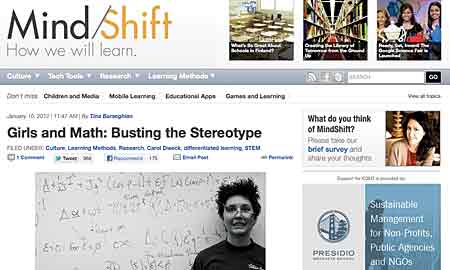Tag: Radio programs
CPB will seek operator to develop American Archive; director leaves project
Having lost its digital projects fund last year, CPB lacks the money to develop the American Archive much further, according to Mark ...Eleven of 12 stations to continue niche blogs
All but one of the dozen pubradio stations in NPR’s Project Argo plan to keep their specialized beat-bloggers working, even though the ...Sports: a real community that some stations join
There’s a new game in town — relatively new to public television, anyway. Blessed with digital multicast channels and eager to attract ...Closing of news bureau leaves regrets, questions
There was no shortage of ideas for keeping Capitol News Connection afloat. CNC’s stock in trade was chasing down politicians for local legislators’ ...Colorado net assigns idle AM to Triple A duty in Denver
Colorado Public Radio has found a new use for the spare AM frequency that it couldn’t sell. OpenAir 1340 took to the ...Norman Corwin, auteur of radio’s golden years, 101
Norman Corwin, a radio writer and producer whose pioneering programs made him one of the most renowned creators of shows during radio’s ...Simeone to stay on as “World of Opera” host, WDAV to distribute show
NPR is dropping distribution of World of Opera as of Nov. 11. The new distributor will be WDAV Classical Public Radio in Charlotte, N.C., ...Simeone’s activism prompts inquiry into ethical standards for pubradio freelancers
Public radio is once again struggling to define the line between on-air talent who report as ethically bound journalists and those personalities ...WVIA leaders plot revival of donated jazz recording label
Possibilities include a jazz show for NPR and PBS stations, and an HD channel dedicated to the musical library.Knell: familiar with dynamics
NPR’s next president already knows how a strong production house can continue to work with pubcasting stations — and also expand its ...Two more feeds syndicate jazz to public radio
Public radio stations shopping for a plug-and-play jazz stream now have double the options to consider, with two newcomers to the field ...Public radio ‘dancing at the edge of change’
There’s some heavy-duty soul-searching going on in public radio. The Public Radio Program Directors conference, Sept. 20–23 in Baltimore, sidelined its usual ...Two news competitors in deficit, so one buys the other in Buffalo
Talks exploring a union between two major public broadcasters in western New York state will culminate with the $4 million sale of ...A comic book to explain media? — a scene so sad that it’s funny
Long after giving a title to her new serious comic book, On the Media co-host Brooke Gladstone is having to explain it away. When ...Changes at Maine documentary school worry its devoted alumni
The departure of the entire four-person faculty from Maine’s small but influential Salt Institute for Documentary Studies has caused concern among the ...






